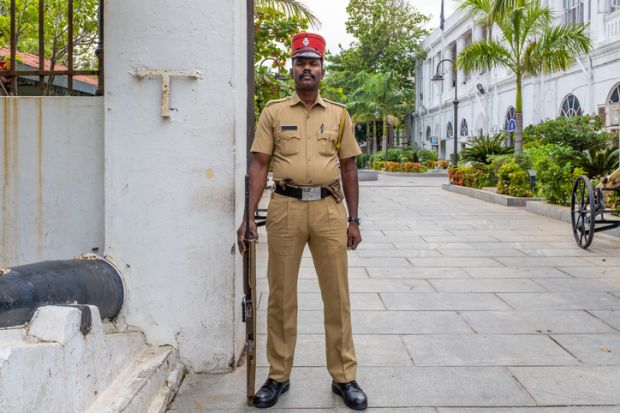Plain-clothes police officers will guard student accommodation at one of India’s largest universities in a bid to protect first-year students from abusive initiation rituals.
As the academic year restarts in India, concerns about hazing, also known as “ragging”, continue following the high-profile death of a 17-year-old at Jadavpur University last year.
The student’s body was discovered just three days after he left home to commence his studies. A police investigation found the first-year had been stripped and verbally abused before running room-to-room naked to escape his abusers. He later fell from a balcony and subsequently died.
The University of Delhi has recently announced new measures to prevent ragging including forming “vigilance squads” to monitor faculties and accommodation, introducing new reporting mechanisms, ongoing campus patrols and posting police pickets and female plain-clothes officers around areas populated by students.
Colleges and hostels have also been advised to restrict “outsiders” from entering and the university said “special assistance” would be given to women’s colleges.
It follows a call by the University Grants Commission (UGC) for all Indian universities to strengthen their anti-ragging measures as students continue to suffer harm, warning any institutions that fail to do so will face “punitive action”. Despite a long-term focus on preventing this, with a 2009 Supreme Court ruling making ragging a criminal offence, the practice persists.
These so-called initiation rituals can often be brutal, with new students facing mental and physical harassment. The UGC revealed last year that more than 25 students had killed themselves between 2018 and 2023 after being subjected to ragging.
Aashish Srivastava, a senior lecturer at Monash Business School and author of Hazing (Ragging) at Universities: A Legal Perspective, welcomed the measures by the University of Delhi but believes they should go further.
“Complaint mechanisms set up by institutions are often ineffective unless they ensure complete anonymity, as freshers who are new to the university are unlikely to come forward,” he said. “Universities should adopt a proactive approach rather than waiting for complaints to take action.”
Dr Srivastava also questioned the gender focus. “Delhi University’s focus seems more geared toward protecting women,” he said.
“While this is important, it overlooks the fact that the most serious ragging incidents occur in boys’ hostels and residences. In addition to deploying female police officers, male police in plain clothes should also be stationed across campuses, hostels and residences.”
After details of the Jadavpur University incident came to light last year, the institution announced that it would establish an anti-ragging committee and anti-ragging squad to prevent further incidents.
However, Dr Srivastava warned, regulations can only go so far. “Anti-ragging rules and guidelines are often not enforced by academic institutions,” he said. “They are created on paper to comply with Supreme Court orders and UGC directions but are rarely implemented effectively at the institutional level.”
Register to continue
Why register?
- Registration is free and only takes a moment
- Once registered, you can read 3 articles a month
- Sign up for our newsletter
Subscribe
Or subscribe for unlimited access to:
- Unlimited access to news, views, insights & reviews
- Digital editions
- Digital access to THE’s university and college rankings analysis
Already registered or a current subscriber? Login








